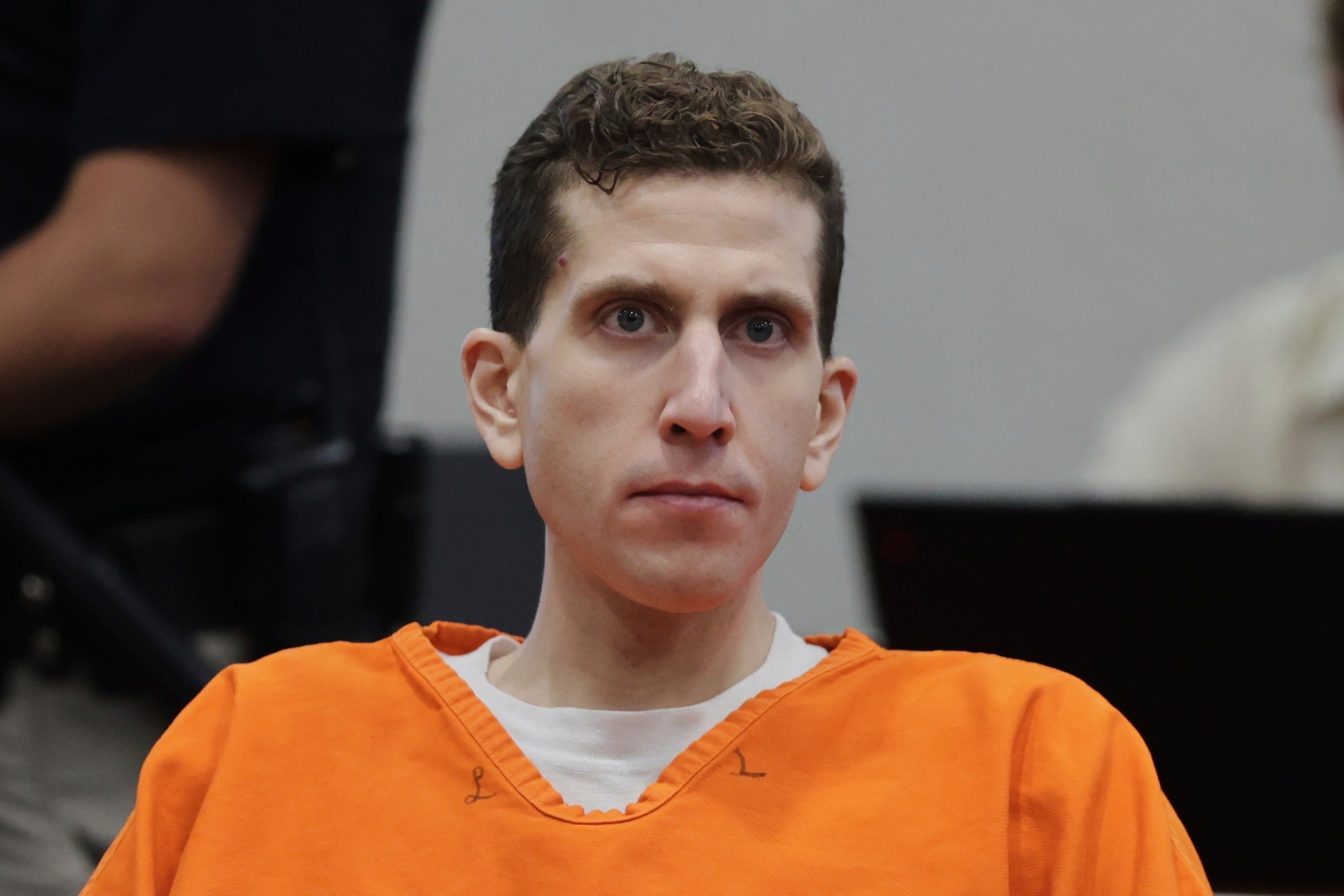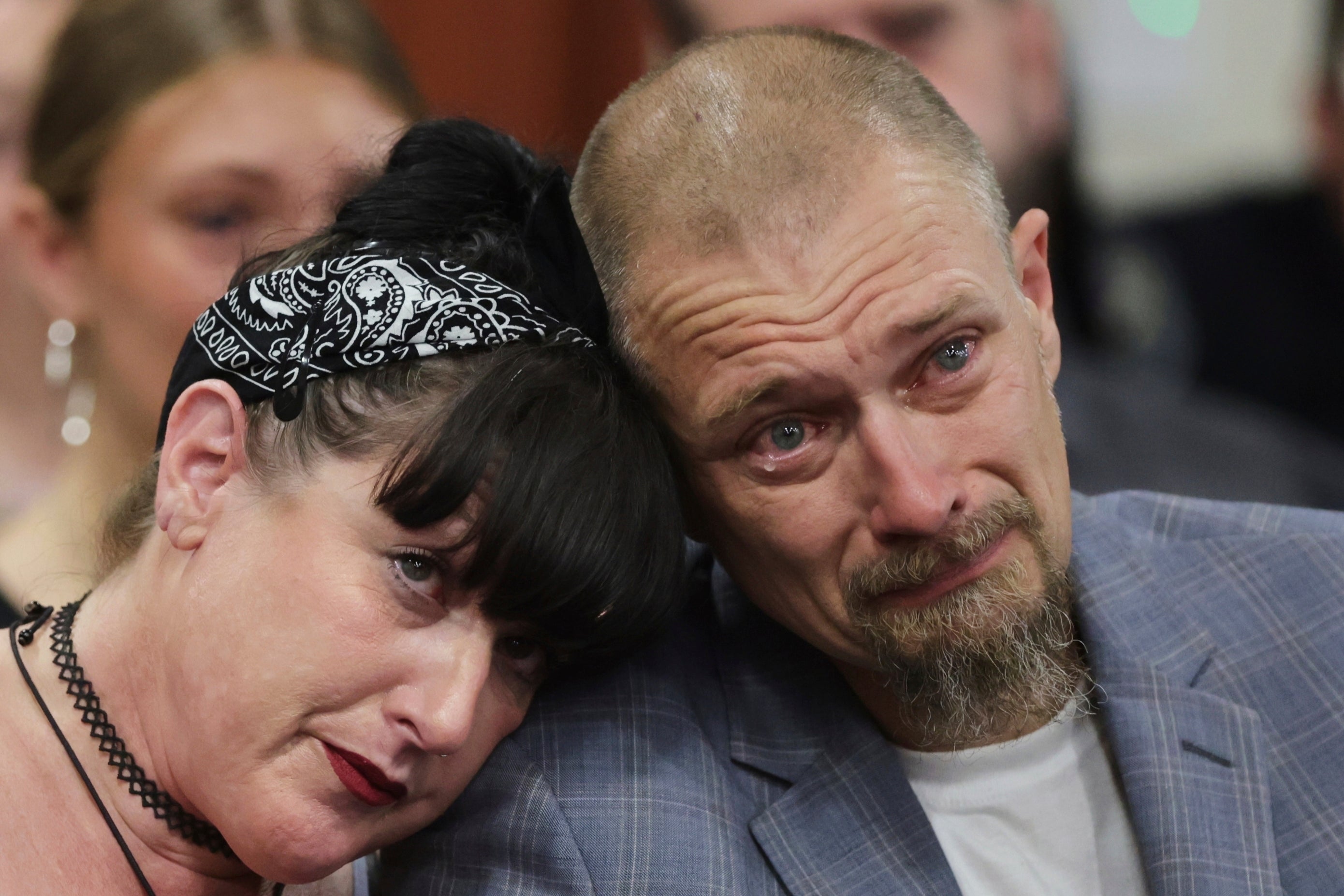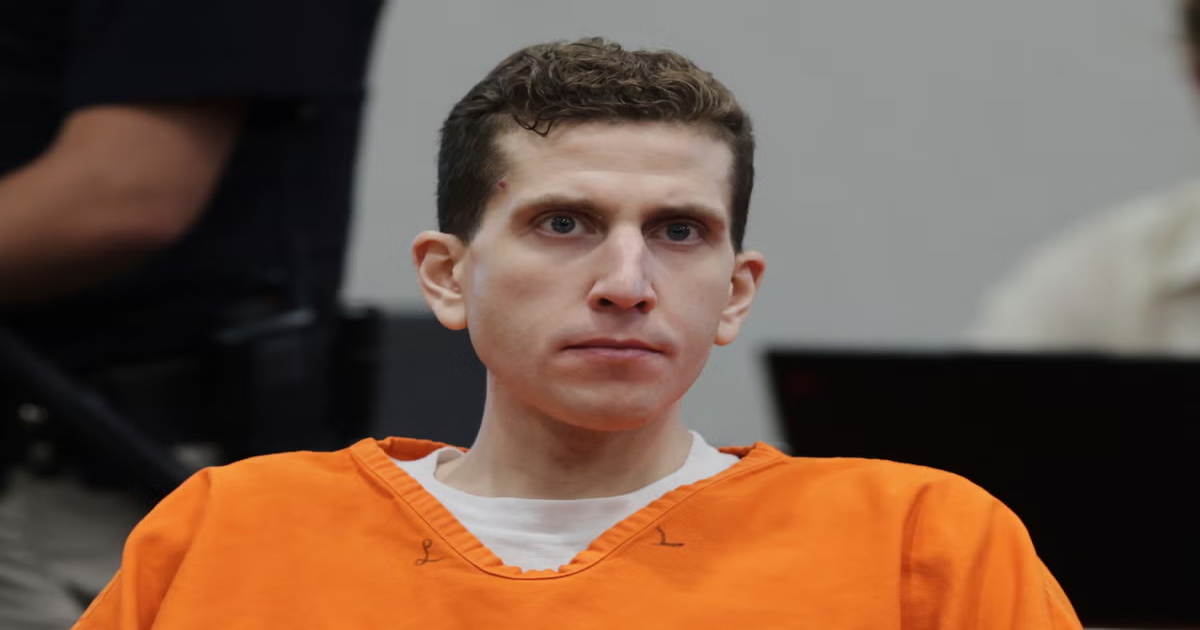
Alivea Goncalves unleashed on the man who murdered her little sister during Wednesday sentencing hearing, peppering Bryan Kohberger with questions that she says “reverberate violently in my own head so loudly that I can’t think straight.”
“How was your life right before you murdered my sisters?” she asked.
“Did you prepare for the crime before leaving your apartment?
“Where is the murder weapon, the clothes you wore that night?
“What did you bring into the house with you?
“What were Kaylee’s last words?
At the heart of Alivea’s demands was the same overwhelming question that continues to haunt the loved ones of Kaylee Goncalves, Madison Mogen, Xana Kernodle and Ethan Chapin, as well as the public: Why did he do it?

The motives of Bryan Kohberger on why he targeted four Idaho college students and brutally murdered them remain unknown — and may always (AP)
Kohberger, 30, declined to speak during his sentencing hearing inside the Ada County Courthouse in Boise, Idaho for the 2022 murders of the four college students.
When asked if he wished to address the court, he simply said, “I respectfully decline.”
That is the longest sentence he’s said publicly in years. But his vague response continues to frustrate the families who simply want to know why their kids were killed.
With no explanation offered and no known link between the killer and the victims, the motive behind one of the most shocking crimes in Idaho history remains a mystery.
Even the judge, who gave emotional comments to the families in his remarks, acknowledged the frustration.
“As we sit here today, this case is ending, and we are now certain who committed these unspeakable acts of evil,” Judge Steven Hippler told the court before handing down four consecutive life sentences.
“But we don’t know, and what we may never know, is why.”
A crime without a known motive
On November 13, 2022, Madison Mogen, Kaylee Goncalves, Xana Kernodle and Ethan Chapin were stabbed to death at their off-campus home in the college town of Moscow, Idaho. Two other roommates were home at the time and survived, but they were not harmed.
Nearly seven weeks later, authorities arrested Kohberger at his parents’ home in Pennsylvania.
Key evidence that led to Kohberger’s arrest and conviction included surveillance footage of his white Hyundai Elantra and DNA found on a knife sheath left at the crime scene.

Alivea Goncalves, sister of victim Kaylee Goncalves speaks at the sentencing hearing of Bryan Kohberger at the Ada County Courthouse (AP Photo/Kyle Green, Pool)

Benjamin Mogen, father of Madison Mogen cries at the sentencing hearing. Kohberger was sentenced to four life terms. (AP Photo/Kyle Green, Pool)
But while police were able to trace physical clues and build a case, they found no thread connecting Kohberger to the victims.
“We have never, to this day, found a single connection between him and any of the four victims or the two surviving roommates,” Lt. Darren Gilbertson of the Idaho State Police said at a press conference following the sentencing on Wednesday
“There is no evidence of a history of violence, no evidence of a serial killer in waiting,” added Latah County Prosecutor Bill Thompson.
“If people are concerned he had some history or trail of disturbing behaviors before this, we’re not aware of it.”
Unanswered questions
Kohberger’s sentencing marked the end of the legal battle but offered little peace for the victims’ families.
Hippler acknowledged the families and public’s desire to understand why the crime happened, but cautioned against giving Kohberger the power that comes from public attention.
“The need to know what is inherently not understandable makes us dependent upon the defendant to provide us with a reason, and that gives him the spotlight, the attention and the power he appears to crave,” Hippler said. “Yet, even if I could force him to speak, which legally I cannot, how could anyone ever be assured that what he speaks is the truth?”
“Do we really believe after all this, he’s capable of speaking the truth or of giving up something of himself to help the very people whose lives he destroyed? Rather, I suspect the so-called reason would be dished out in enticing, self-serving and aggrandizing untruthful bits, leaving people wanting more information, more insight, and thus enhancing even further the power he seeks to hold,” Hippler added.

Many are saying the case lacks closure because the world doesn’t know why he carried out the crimes. (Instagram)
Prosecutor Bill Thompson echoed this at the press conference.
“I don’t believe that there’s anything that would come out of his mouth that would be the truth,” Thompson said.
Kohberger was sentenced to four consecutive life terms for murder, an additional 10 years for burglary, and ordered to pay $290,000 in restitution.
Still, for the families of Mogen, Goncalves, Kernodle and Chapin, justice feels incomplete.
In the end, they may never know what led a man with no known connection to the victims to commit such a calculated act of violence, why he chose to rip a community apart.
Sister Alivea made it clear in her scathing address to Kohberger that having her questions answered would not make her think any better of him.
“You act like no one can ever understand your mind,” she said. “But the truth is you’re basic. You’re a textbook case of insecurity disguised as control. Your patterns are predictable. Your motives are shallow. You are not profound. You’re pathetic.
“You aren’t special or deep, not mysterious or exceptional. Don’t ever get it twisted again.”
